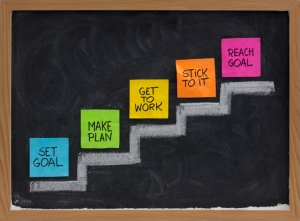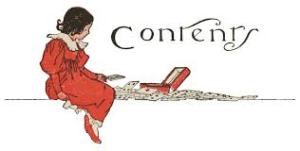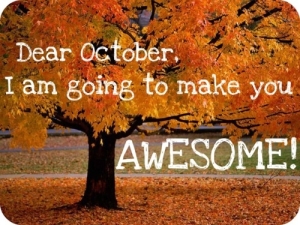- National Novel Writing Month
- One novel/ 50,000 words (200 pages) in November
How It Works
- Make a commitment
- Let go of quality, focus on quantity
- No going back and re-writing/ editing
- Discipline, focus, and endurance
Set a Goal
- Doesn’t have to be a novel
- Doesn’t have to be 50,000 words
- Stretch yourself, don’t stress yourself
Think of a Reward
- Tangible: Not "the satisfaction of writing a novel."
- Motivator during tough times
- Achievement or effort?
- Multiple rewards? Daily? Weekly? Milestones?
- You need to celebrate
Make a Plan
- Where and when do you best write?
- Can you adapt if conditions aren't ideal?
- How efficient are you at writing?
- How can you fit writing into your schedule?
- What sacrifices will you need to make?
Create an Outline
- Brainstorm ideas for novel
- Organize ideas into a logical sequence
- Doesn't have to be permanent: go off script
- Book in a Month by Victoria Lynn Schmidt
Crunchtober
- "October is crunch time."
- Practice: 500 words a day in October
- I use it for brainstorming/ outlining
Gather Support
- Affirmation, Accountability, Mentorship, Company, Competition, Free Time
- Nanowrimo.org: Word Tracker, Pep Talks, Find Local Writers, Prizes
Winning Nanowrimo: The Challenge
Winning Nanowrimo: Creating an Outline
Winning Nanowrimo: Crunchtober
Winning Nanowrimo: Gathering Support
OUTLINE #1: PLOT
What’s your story about?List at least ten key events that happen throughout the story
Event #1: Inciting Incident
Event #2
Event #3
Event #4: Reversal
Event #5
Event #6
Event #7: Reversal
Event #8
Event #9: Climax
Event #10: Resolution
How do these events connect to each other?
Problems or Questions:
OUTLINE #2: CHARACTER
Ask your main characters the following questions:
What do they look like? (Age, gender, important physical qualities)
Who/ what do they love/ hate? (Stakes)
What do they desire? (Motivation)
What do they fear? (Obstacle)
What do they believe in? (Theme)
What is their background/ history? (Depth)
What is their greatest secret? (Surprise)
Don’t forget to come up with an antagonist.
OUTLINE #3: SETTING
Decide on the General Setting.Physical Landscape
- city, suburb, or country?
- land and water
- nature: plants and animals
- buildings and man-made environments
- clothes: how does it express their culture?
- objects: what things are commonly used?
- technology, politics, religion
- how long does the story take place: days? months? years?
- any noticeable time gaps?
- clothes: how does it protect them from the elements?
- holidays
- dangers
Room, house, café, train, fort, spaceship, forest, etc.
What objects do you see? How might the hero use them?
How might this setting help advance the plot?








No comments:
Post a Comment